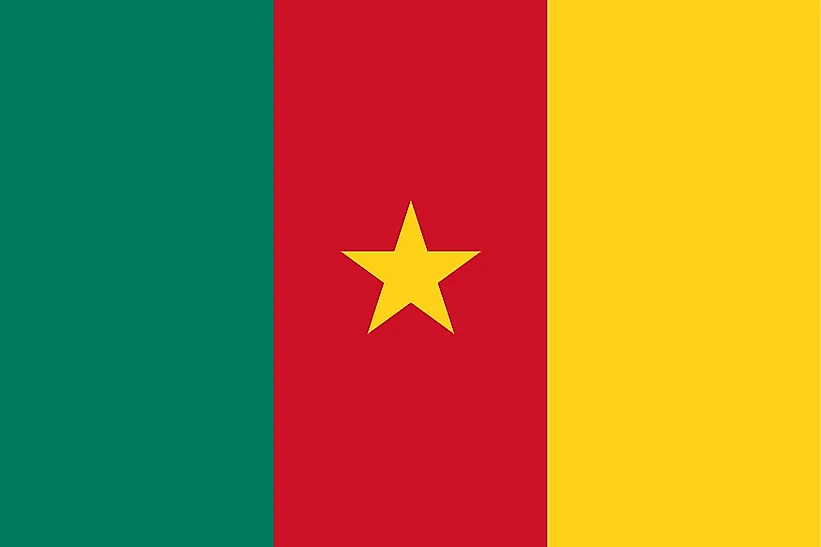
카메룬
| 대륙 | 아프리카 |
| 자본 | 야운데 |
| 인구 | 24,360,803 |
| GDP | $772.24억 |
| 1인당 GDP | $3,300 |
| 다이얼링 코드 | +237 |
| ISO 코드(2글자) | CM |
| ISO 코드(3글자) | CMR |
카메룬 소개
특별한 지리적, 문화적 다양성으로 인해 '아프리카의 축소판'이라 불리는 카메룬에 오신 것을 환영합니다. 약 2,650만 명의 인구가 475,442㎢에 거주하는 카메룬은 아프리카의 거의 모든 기후와 지리적 특징을 보여줍니다. 열대 해변에서 눈 덮인 산, 열대우림에서 사바나에 이르기까지 이 중앙 아프리카 국가는 아프리카 대륙의 풍부한 다양성을 종합적으로 엿볼 수 있는 곳입니다.
지리적 특징과 자연의 아름다움
카메룬의 지형은 아프리카의 모든 주요 기후 및 식물 지대를 아우르며 놀라울 정도로 다양합니다. 4,095미터에 달하는 활화산인 카메룬 산은 서아프리카에서 가장 높은 봉우리로, 적도 근처에서 가끔 눈을 볼 수 있는 아프리카에서 몇 안 되는 곳 중 하나입니다.
이 나라의 풍경은 남쪽의 열대 우림, 북쪽의 사바나 평원, 서쪽의 산악 고원, 기니만을 따라 펼쳐진 해안 평원 등으로 이루어져 있습니다. 북쪽의 와자 국립공원에서는 사헬 야생동물을 볼 수 있고, 남쪽의 코럽 국립공원에는 아프리카에서 가장 오래된 열대우림이 있습니다.
해안 지역에는 아름다운 해변과 하구, 맹그로브 늪이 있으며, 중앙의 아다마와 고원은 콩고와 니제르 분지 사이의 분수령 역할을 합니다.
문화 유산과 전통
카메룬의 문화는 250개가 넘는 민족과 언어로 매우 다양하며, 아프리카에서 가장 문화적으로 다양한 국가 중 하나입니다. 이러한 다양성은 음악, 춤, 예술, 전통 의식에 반영되어 있습니다.
전통 예술과 공예품으로는 정교한 나무 조각, 청동 및 황동 작품, 바밀레케 지역의 엔돕 천과 같은 섬유 예술이 있습니다. 이 나라의 음악적 전통은 바카족의 복잡한 리듬부터 국제적으로 인정받고 있는 현대 마코사와 비쿠시 스타일에 이르기까지 다양합니다.
카메룬 요리는 지역마다 다르지만 일반적으로 후푸, 은돌레(쓴 잎과 고기로 만든 요리), 수야(양념 구운 고기) 등이 대표 메뉴입니다. 카메룬은 고품질 커피와 코코아 생산으로도 유명합니다.
역사 여행
카메룬의 역사는 초기 인류 거주부터 다양한 왕국과 제국을 거쳐 유럽의 식민지까지 이어져 왔습니다. 카메룬의 국명은 포르투갈어인 "카마로에스"(새우)에서 유래한 것으로, 우리 강에 새우가 많다는 뜻입니다.
이 지역은 독일의 식민지배와 이후 프랑스와 영국의 통치를 모두 경험했으며, 영어와 프랑스어를 공식 언어로 사용하는 독특한 상황이 발생했습니다. 카메룬은 1960년(프랑스 카메룬)과 1961년(영국 카메룬)에 독립하여 이중 언어를 사용하는 연방 공화국을 만들었고, 이후 단일 국가가 되었습니다.
현대 경제 환경
오늘날 카메룬은 농업, 석유 생산, 서비스업을 기반으로 중앙 아프리카에서 가장 다양한 경제를 가진 나라 중 하나입니다. 카메룬은 커피, 코코아, 면화, 바나나를 비롯한 농산물의 주요 생산국입니다.
1970년대 석유 발견으로 경제 발전이 촉진되었지만 정부는 농업의 다양성을 유지하기 위해 노력해 왔습니다. 또한 이웃 국가에 비해 상당한 인프라와 제조 역량을 발전시켰습니다.
국제 관계 및 글로벌 포지셔닝
카메룬은 다양한 국제기구에 적극적으로 참여하고 있으며 중앙 아프리카 지역 문제에서 중요한 역할을 담당하고 있습니다. 카메룬은 독특한 식민지 유산을 반영하듯 영연방과 라 프랑코포니의 회원국입니다.
알고 계셨나요?
- 카메룬의 축구 국가대표팀인 불굴의 라이온스는 1990년 아프리카 팀 최초로 월드컵 8강에 진출한 팀인가요?
- 이 나라에는 세계에서 가장 희귀한 고릴라와 침팬지가 서식하고 있나요?
- 카메룬의 크리비 해안은 아프리카에서 몇 안 되는 백사장이 있는 곳인가요?
- 아프리카에서 문맹률이 가장 높은 나라 중 하나이며 여러 주요 대학이 있는 나라?
결론
카메룬은 아프리카 다양성의 축소판으로, 방문객과 주민 모두에게 특별한 경험과 기회를 제공합니다. 다양한 풍경부터 풍부한 문화유산, 농업 유산, 현대적 개발 열망에 이르기까지 카메룬은 아프리카 문제에서 독특한 역할을 계속하고 있습니다. 카메룬은 지역 안보와 경제 개발 등 당면한 과제에 직면해 있지만, 뛰어난 자연과 문화 유산을 보존하면서 지속 가능한 성장을 위해 다양성과 자원을 활용하기 위해 최선을 다하고 있습니다.





